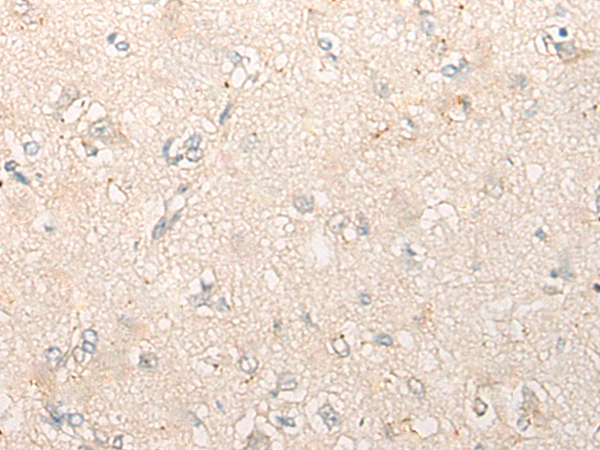
| WB | 咨询技术 | Human,Mouse,Rat |
| IF | 咨询技术 | Human,Mouse,Rat |
| IHC | 1/20-1/100 | Human,Mouse,Rat |
| ICC | 技术咨询 | Human,Mouse,Rat |
| FCM | 咨询技术 | Human,Mouse,Rat |
| Elisa | 1/5000-1/10000 | Human,Mouse,Rat |
| Aliases | PCIA1; C19orf58 |
| Host/Isotype | Rabbit IgG |
| Antibody Type | Primary antibody |
| Storage | Store at 4°C short term. Aliquot and store at -20°C long term. Avoid freeze/thaw cycles. |
| Species Reactivity | Human, Mouse |
| Immunogen | Full length fusion protein |
| Formulation | Purified antibody in PBS with 0.05% sodium azide and 50% glycerol. |
+ +
以下是关于DDA1抗体的3篇参考文献,按文献名称、作者和摘要内容概括列出:
---
1. **文献名称**: *DDA1 is an autophagy receptor protein for selective clearance of protein aggregates mediated by the ubiquitin-proteasome system*
**作者**: Li W, et al.
**摘要**: 该研究揭示了DDA1作为自噬受体蛋白的功能,通过结合泛素化蛋白聚集体并招募自噬 machinery 促进其降解。研究中利用特异性DDA1抗体进行免疫共沉淀(Co-IP)和免疫荧光实验,证实了DDA1在蛋白酶体-自噬交叉调控中的关键作用。
---
2. **文献名称**: *DDA1 interacts with the CRL4 ubiquitin ligase complex and regulates cell cycle progression*
**作者**: Zhang Y, et al.
**摘要**: 本文通过免疫印迹(Western blot)和免疫组化(IHC)实验,使用DDA1抗体验证了DDA1与CRL4泛素连接酶复合物的相互作用,并发现DDA1缺失导致细胞周期G1/S期阻滞,提示其在肿瘤发生中的潜在调控机制。
---
3. **文献名称**: *Development and validation of a monoclonal antibody specific for human DDA1 protein*
**作者**: Chen L, et al.
**摘要**: 研究团队开发了一种高特异性抗人DDA1单克隆抗体,通过ELISA、流式细胞术和免疫组织化学验证其灵敏度与特异性。该抗体成功应用于检测多种癌症组织中DDA1的异常高表达,为临床诊断提供新工具。
---
**注**:若需扩展检索(如DDA1在神经退行性疾病中的作用),可补充更多文献方向。
DDA1 (DET1 and DDB1-associated protein 1) is a protein that has garnered interest due to its role in the ubiquitin-proteasome system, a critical pathway for protein degradation and cellular regulation. Initially identified as a binding partner of DDB1 (DNA damage-binding protein 1) and CUL4A (Cullin 4A), DDA1 is a component of the CUL4-DDB1 ubiquitin ligase complex, which participates in substrate recognition and ubiquitination. This complex is involved in diverse cellular processes, including DNA repair, cell cycle control, and transcriptional regulation. Dysregulation of ubiquitination pathways is frequently linked to diseases such as cancer, making DDA1 a subject of research in oncology.
Studies suggest that DDA1 may act as an oncogene or tumor suppressor depending on cellular context. For instance, elevated DDA1 expression has been observed in certain cancers, such as prostate and lung cancer, where it potentially promotes tumor progression by destabilizing tumor-suppressive proteins. Conversely, reduced DDA1 levels have been implicated in hepatocellular carcinoma, indicating a complex, tissue-specific role.
DDA1 antibodies are essential tools for investigating these mechanisms. They enable detection of DDA1 expression in tissues or cell lines via techniques like Western blotting, immunohistochemistry, and immunofluorescence. Researchers also use these antibodies to study protein-protein interactions, particularly within the CUL4-DDB1 complex, to elucidate DDA1’s regulatory functions. Emerging evidence highlights its potential as a biomarker or therapeutic target, driving further exploration into its molecular interactions and disease relevance.
×